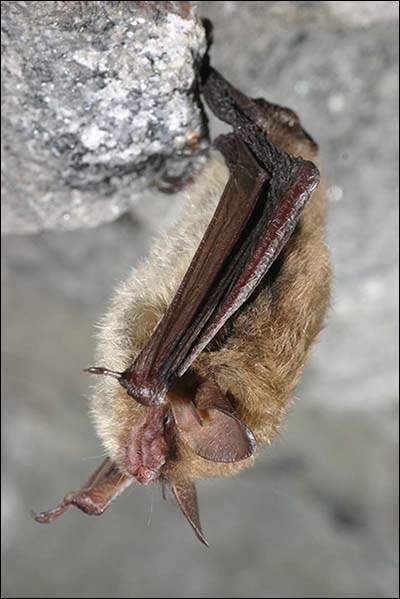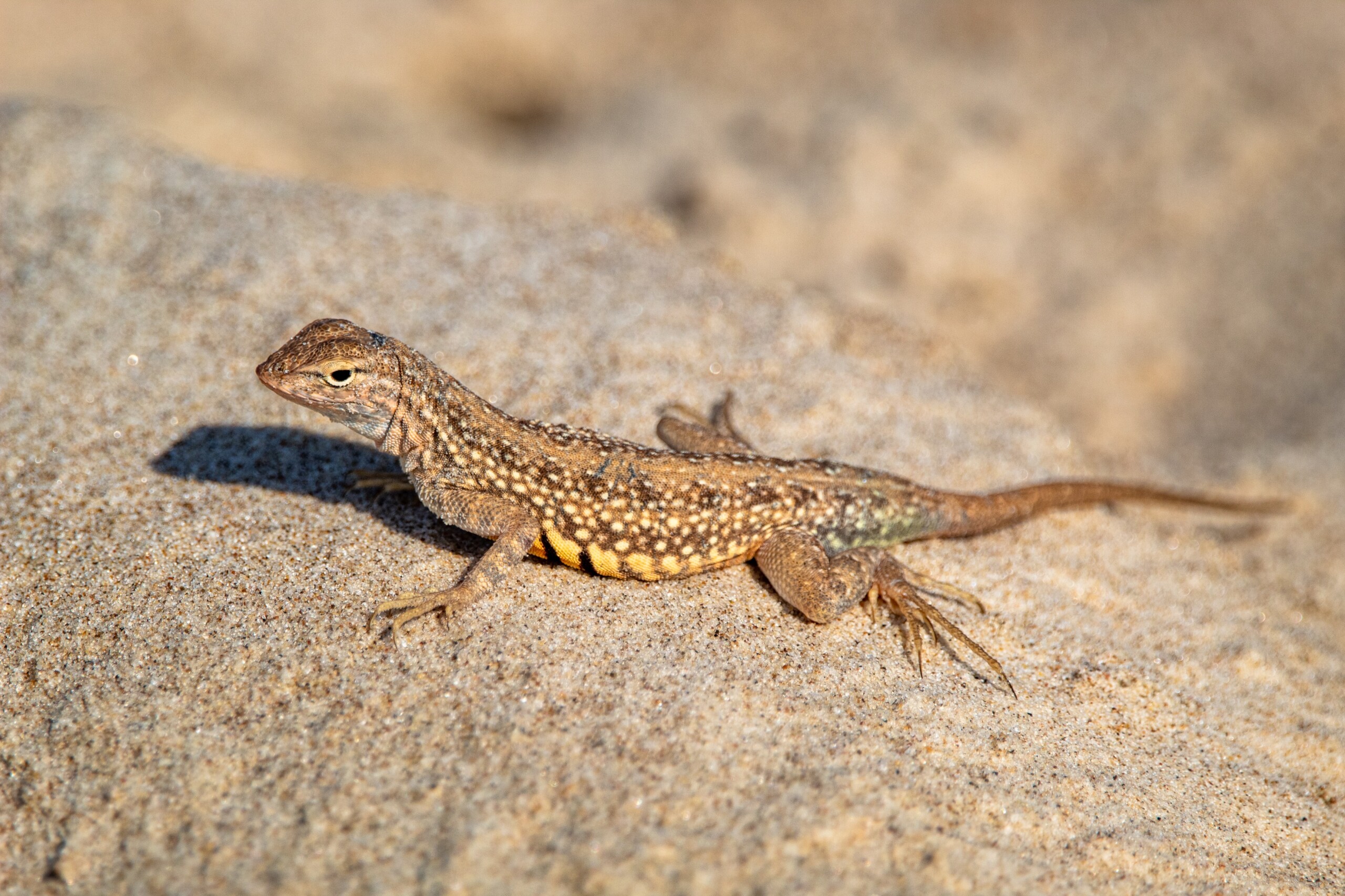Issues
IPAA submits comments on potential Tricolored bat listing. In conjunction with the American Exploration and Production Council and the American Petroleum Institute, IPAA submitted comments this week in regard to the U.S. Fish and Wildlife Service’s considering a listing under the Endangered Species Act (ESA) for the Tricolored bat, a small bat with “tricolored” hair that inhabits the East and Midwest regions of the United States.
In the comments, the associations acknowledge that White-nose syndrome is the main contributing factor to the species’ population declines, much like that of the Northern long-eared bat, which currently is listed as threatened with a 4(d) rule that allows development under certain conditions. “Because the range and habitat of the Tricolored bat within the region is similar to those of bats already listed under the ESA, conservation measures and forest management practices are currently in place to ensure that habitat modifications resulting from activities that manage forests would not significantly affect the conservation of the threatened northern long-eared bat or other bat species that share its range,” the comments read.
The comments continue, noting if Fish and Wildlife makes the determination to propose a listing of the Tricolored bat the Service ought to “acknowledge that WNS is the primary threat to the Tricolored bat species population, to recognize existing conservation measures benefitting the Tricolored bat during the species status assessment, and to adopt a 4(d) rule to include oil and gas activities conducted in accordance with applicable state and federal law.”
Congress passes omnibus spending bill. In succession yesterday, both chambers of Congress passed a $1.3 trillion fiscal 2018 package, avoiding a federal government shutdown. The House of Representatives approved the bill first with a vote of 256 to 167, sending it to the Senate late last night where it was passed 65-32. The 2,200-page bill now sits with President Trump to sign into law.
According to E&E News, the U.S. Department of Energy is set to see a major increase in funds for 2018. Specifically, $43.2 billion was allocated to the Energy and Water spending bill, which encompasses the DOE and U.S. Army Corps of Engineers, whereas in 2017 that amount was only $4.7 billion. Additionally, many agencies inside the Department of Interior are set to receive boosts in funding. If the omnibus bill passes, the National Park Service would receive $3.2 billion, the Fish and Wildlife Service $1.6 billion, and the Bureau of Land Management (BLM) $1.3 billion, $60 million of which would be specifically put towards “greater sage-grouse and related sage-steppe conservation activities.”
Wrapped into the BLM’s budget is funding for the Endangered Species Act (ESA), elements of which are expected to see both increases and decreases in allotted spending. Funds reserved for listing a species under the ESA will be decreased by $1.607 million, funds for planning and consultation will be up by $2.5 million, and those for recovery and conservation efforts will see an increase of $7 million.
Lawsuit dropped against Trump administration after habitat reconsideration announcement. Late last week, a lawsuit against the federal government was dropped after the Trump administration announced it would reconsider what was the divisive subject of the lawsuit: critical habitat rules.
In 2016, the Obama administration broadened how the “critical habitat” designation could be applied, deciding that it could be applied not only to lands that were known to be home to endangered and threatened species, but even to lands on which neither of these kinds of species were known to inhabit. In response, twenty states filed a lawsuit against the federal government in the U.S. District Court for the Southern District of Alabama claiming that the changes allowed for “entire states” to be deemed critical habitat for species under the Endangered Species Act (ESA), which would have a severe negative impact on industry and development, the states argued.
Upon its announcement that it would reconsider the rules, the current administration negotiated a settlement with the states, which led to their notifying the Alabama to dismiss the charges. Senior Judge Callie V.S. Granade accepted the states’ motion and closed the case. “We are encouraged that the Trump administration has agreed to revisit these rules, which threaten property owners’ rights to use any land that the federal government could dream that an endangered species might ever inhabit,” Alabama Attorney General Steve Marshall said in a statement.
In the News
Powell company halts plans to raise sage grouse. Casper Star-Tribune. Wyoming’s controversial effort to breed the greater sage grouse in captivity has suffered a setback, as the only state-certified game bird farm has decided to take a pass on collecting eggs this spring. Diamond Wings Upland Game Birds informed Wyoming Game and Fish Department officials last week that the egg hunt is off for the 2018 season. Located a few miles west of Powell, it was the only company to apply and be certified to raise the grouse. The decision puts in doubt private industry’s future attempts to rear the imperiled species. Diemer True, owner of Diamond Wings, called off the project just days prior to a Thursday deadline for updates to his sage grouse rearing facility. The company’s decision was announced Thursday at a regular meeting of the Wyoming Game and Fish Commission in Cody. “The ball was in their court on what they were going to do,” Scott Edberg, deputy chief of the Game and Fish’s wildlife division, told the commission.
Enviros say they’ll sue feds over inaction on pesticide. Law360. The Center for Biological Diversity sent a notice Tuesday informing two federal agencies that it intended to sue, alleging they aren’t analyzing and moving to limit the impact of a common pesticide despite information that says it likely harms many protected species. The CBD and other environmental groups said the U.S. Environmental Protection Agency and the U.S. Fish and Wildlife Service’s inaction on the pesticide malathion, which is authorized for use on everything from wheat to alfalfa, violates the Endangered Species Act. They said that despite obligations to act, the agencies have failed to complete an analysis of the pesticide in the wake of a chemical company asking the government to hold off on more work. “It’s sickening to see the Trump administration put human health and endangered wildlife at risk to please [chemical company Dow AgroSciences],” Stephanie Parent, a CBD attorney, said in a statement. “This administration is not above the law. It has to take reasonable steps to limit these pesticides’ harms to people and the environment.”
Battle of species pits protected sea lions vs. fragile fish. Associated Press. The 700-pound sea lion blinked in the sun, sniffed the sea air and then lazily shifted to the edge of the truck bed and plopped onto the beach below. Freed from the cage that carried him to the ocean, the massive marine mammal shuffled into the surf, looked left, looked right and then started swimming north as a collective groan went up from wildlife officials who watched from the shore. After two days spent trapping and relocating the animal designated #U253, he was headed back to where he started — an Oregon river 130 miles (209 kilometers) from the Pacific Ocean that has become an all-you-can-eat fish buffet for hungry sea lions.
Judge: Agency cherrypicked science for bison management. High Country News. Before dawn on a frigid morning earlier this month, two members of the activist group Wild Buffalo Defense locked themselves to part of an enclosure at Yellowstone National Park’s Stephens Creek Capture Facility. Bison held at the facility are tested by park staff for brucellosis, and hundreds are destined for slaughter as part of the Park Service’s annual herd reductions. The demonstrators hoped to prevent the continued killing of Yellowstone bison and to protest a recent decision not to allow the transfer of bison to the Fort Peck Reservation, in Montana. As activists continue to fight the culling of Yellowstone bison, a recent court decision could help them get what they want: stronger protections for the park’s herds. Bison numbers are reduced through slaughter and hunting each year for a couple of reasons. Park managers say they need to keep the numbers low or the bison will overgraze in the park.
Wyoming considers grizzly hunt after Trump team took bear off endangered list. Washington Post. It might soon be grizzly bear hunting season in Wyoming. In the wake of a Trump administration decision last summer to remove the bear from the endangered species list, the state is considering considering allowing hunters to kill up to two dozen Yellowstone-area bears. It would be the first grizzly bear hunt in the Lower 48 states since the icons of the Western United States were put on the endangered species list in 1975. The prospect of a new hunting season for grizzlies has long been a source of controversy among residents near and patrons of Yellowstone National Park as the grizzly population has recovered to about 700 members in the area. Anti-hunting advocates, including many environmental and Native American groups, contend the bear is still under threat from broad changes to the Yellowstone ecosystem. But as their numbers increased, hunting advocates and the state’s Wyoming Game and Fish Department point out, so have conflicts ranging from raided garbage cans to stalked livestock.




